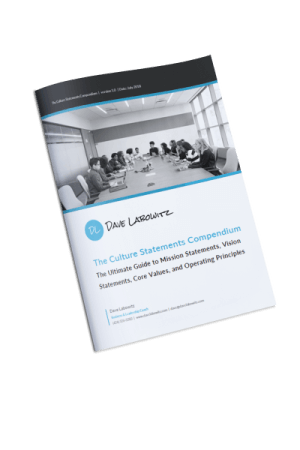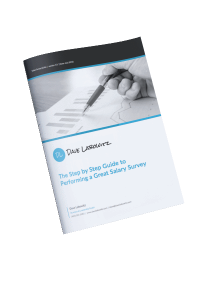You’ve undoubtedly heard the expression, “You never get a second chance to make a first impression.” If you keep it in mind during the first six months of a new job it will help set you up for long-term success in your career at the company. Why six months if we’re talking about first impressions? Because as long as people continue to see you do or respond to things for the first time, first impressions are still in play.
Consider first impressions like a line drawing done in pen. It’s the initial lines that determine what the picture will be. With each line drawn, every successive line changes less about the picture. Each line you draw also makes the picture more difficult to change meaningfully with the following line. Eventually, the picture is fully drawn and there’s no longer any point in adding more lines. While people’s very early impressions of you may draw the broad strokes of your picture, they’re still refining and filling in for quite some time. Keeping your focus until their drawing is complete will give you far more influence over the final picture.
Once set, people’s opinion of someone generally changes very slowly. This is why the first six months of your new job are so important. Here’s an example: If you leave early on too many days in the first few months after being hired people will learn to think of you as someone doesn’t work hard. For the rest of your time with the company, every time you have to leave early or take a day off, people will roll their eyes and glance meaningfully at each other. Think about the alternative: You bust your ass for the entire first six months. People learn to think of you as a hard, dedicated worker. For the rest of your time with the company, every time you have to leave early or take a day off people think nothing of it, because they know you work so many hours. Which person would you rather be? Which person do you think can get away with taking more time off?
If you adopt the following behaviors they will set you up for long-term success at your company. Some of them are common sense: the blocking and tackling of being a professional. That means they’re important because failure to do them will be glaringly obvious.
Blocking and tackling
- Show up on time for work and meetings
- Respond promptly to calls and emails that require a response
- Keep commitments or notify people in advance if you’re going to miss
- Be a good team player and go an extra mile to help others
- Take notes in meetings rather than walking out empty handed leaving others to wonder if you got it and/or will remember it
- Prepare for meetings; don’t just show up and wing it. This is especially important in one on ones with your boss. Having a well-thought through agenda is far more impressive than asking, “What do you want to talk about?”
- Take opportunities to give acknowledgment when you see someone doing something noteworthy. Don’t you like hearing “Good job” and “Thank you?” Give that gift to others.
- Stay off your cell phone during the day. Every office has at least one person who seems to spend their whole day staring into their phone. Don’t be that person.
Be humble enough to ask questions
I learned this one the hard way. Early in my career, I got a senior position in an industry I knew very little about. I wanted to come across as smart and knowledgeable, fearing that if I didn’t, people would think they hired the wrong guy. Insecure about my lack of knowledge, I hesitated to ask too many questions for fear of looking ignorant. Unfortunately, I was smooth enough to pull it off. A year later I still hadn’t asked the questions. As a new hire, my ignorance would have been understandable but as an experienced senior leader, there was no possible excuse. It took years for me to fill in the gaps in my knowledge and (rebuild the self-confidence I lost). Don’t make this mistake! Instead, be humble and ask your questions at the beginning when it’s understandable. If you ever hesitate, thinking, “This is a dumb question,” think instead of how dumb it will sound a year later and ask! Anything you may cost yourself in terms of IQ reputation for lack of knowledge you’ll win back in EQ reputation for humility.
Put in the hours
Ideally, people would be judged by what they produce not how many hours they spend in the office. Sadly, hours are often more visible to your peers than production. One of the worst reputations to get in your company is the person who’s always leaving early and missing work. Bust your ass for the first six months: Come in early, stay late, work on weekends if it will help. Consider it a sprint. The rest of your career at the company will be the marathon. Once people decide you’re a committed team member, it won’t matter anymore and you’ll be able to take more time off than if you were thought of as a lazy malingerer. This is especially important as a leader because your team will be resentful if they feel they have to work harder than you. Lead by example.
Have your team teach you things
Your experienced team members are a goldmine of knowledge and experience. Ask your direct reports to teach you things as often as possible. Not only will you learn a ton, it will show them you’re humble, that you respect their viewpoint, and that you’ll be willing to listen to them. This will help create connection and respect.
Get to know people
Business success is arguably more about building relationships than anything else. Put in the time to get to know people and have some conversations about more than work. If this comes naturally to you, great, do your thing. If it’s a bit more challenging, focus on finding one area of connection with each member of your team. Inquire and share on topics like family, where you’re from, where you went to school, which sports you like, hobbies, food, exercise, or family.
Don’t eat alone
It’s easy to fall into a pattern of eating at your desk, reading email or just trying to keep grinding. You’re probably thinking that if you don’t work through lunch you’ll just have to stay at the office an hour later. That may be true, but look at the flip side: How often do you really leave earlier because you work through lunch? I bet it’s pretty rare. If you’re the type to work through lunch, you’re not the type to leave early. Instead, take the opportunity to eat with one or more team members, customers, or even vendors. Sharing a meal is a great way to build relationships. I recommend reading this book.
Be a good team member
Being asked for help isn’t an inconvenience, it’s an opportunity to help someone and feel good. Think about it: When someone asks you for help, aren’t you flattered? It feels good to know that someone respects you enough to want your help. It feels even better to know you were able to help them. In the crush of the day when you’re busy, it’s easy to forget this truth and consider a request for help an intrusion. Instead, remember that the more you help your team, the more they’ll love working with you. Take a moment to think about a few people you’ve known in your career you liked working with the most. I bet they loved helping people.
Talk to customers
There is absolutely no substitute for talking to your customers. Learn what they expect from you and your team, how they judge quality, what fantastic results look like for them, what is going well, and what can be improved upon. Everyone has customers; if you don’t interact with the company’s external customers, figure out who your internal customers are. You don’t need an urgent reason to set up a call with a customer. Just tell them you’d like to introduce yourself, check in, and see if there’s anything you can do for them. They’ll be grateful you care enough to do it. And it goes without saying that building strong relationships with your customers is just as important as building strong relationships with your team.
Now go crush it!
The first six months of a new job are an opportunity to shape people’s impression of you. Use them to set yourself up for success the entire time you’re with the company. If you adopt the above behaviors to stay mindful, humble, curious, engaging, organized, helpful, responsible, and committed during your first six months, you’ll be on a path to success both in terms of results and the respect of your team.
What do you do when starting a new job to set yourself up for success?






